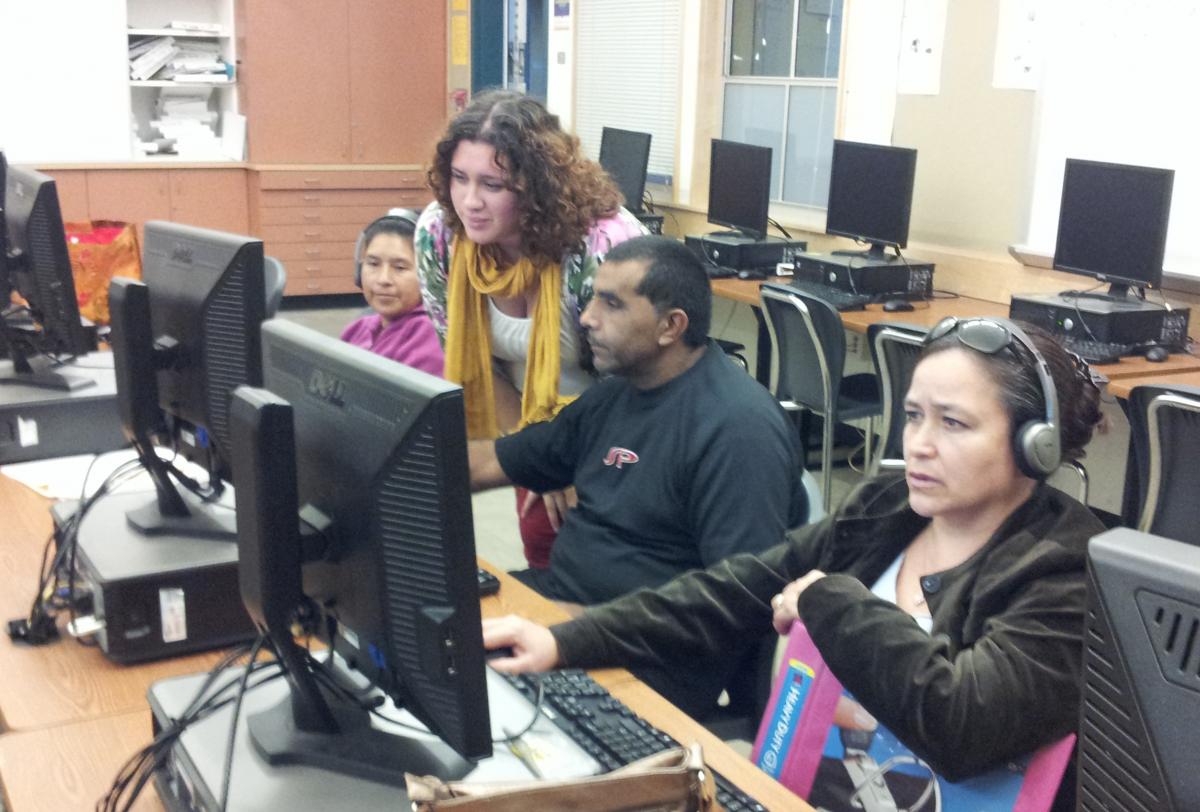October 22, 2015
By Andrew Pizzolato, Gloria Jacobs, Jill Castek, Elizabeth Withers, and Kimberly Pendell
The Literacy, Language and Technology Research group (LLTR) at Portland State University is pleased to announce that it has completed its "Tutor-facilitated digital literacy acquisition in hard-to-serve populations" research project. Made possible in part by the Institute of Museum and Library Services, this project examines the tutor-facilitated, self-paced digital literacy acquisition of adult learners who participated in a national Broadband Technology Opportunities Program project.

Over the course of three years, LLTR researchers conducted approximately 100 interviews with the National Broadband Technology Opportunities Program participants, including learners, tutors, learners who became tutors, program coordinators, and administrative staff. The research also analyzed system information from a web-based learning platform. From its earliest stages, experienced researchers, educators, and administrators brought their expertise to bear in designing the research project and shaping its dissemination materials.
Over the past year and a half, members of the LLTR research team have travelled to conferences, presenting our findings for audiences interested in adult education, libraries, corrections, and educational technology. We are also pleased to have published related articles that elaborate on our findings. More recently, we have developed dissemination materials aimed toward practitioners, program directors, and policy makers. These materials give our findings life beyond the project and are meant to be drawn from and serve all stakeholders in future research and practice.
Among the dissemination materials are a dozen research briefs on focused topics that address issues surrounding program design, English language learners, tutors, and learners. Also included are three case studies that analyze specific topics (corrections, libraries, and the experiences of job seeking learners) in greater detail and explore learning environments and program structures within these contexts. One additional policy brief, which focuses on community connections, reveals significant implications for funding and prioritizing collaborations across institutions that partner in this important work.
We invite you to join us on Thursday, November 5, 2015 at 11:00 AM Pacific Time (2:00 PM Eastern) for a webinar where we will summarize our findings and introduce an archive of our research and dissemination materials. Focusing on results that illuminate the importance of the learner-tutor relationship in the digital literacy acquisition process, the webinar will also delve deeper into those findings that call on the field to re-conceptualize how we measure success among adult learners who are new to technology. Finally, we will celebrate the tremendous positive impact digital literacy programs can have on learners by sharing learner testimony about how digital skills can transform lives. Webinar participants will also be introduced to our research archive that will be freely accessible to all interested researchers and practitioners. We look forward to sharing these exciting findings and materials and encourage you to sign up for the November 5 webinar by visiting our event page.
The authors are part of the Literacy, Language and Technology Research Group (LLTR) at Portland State University.